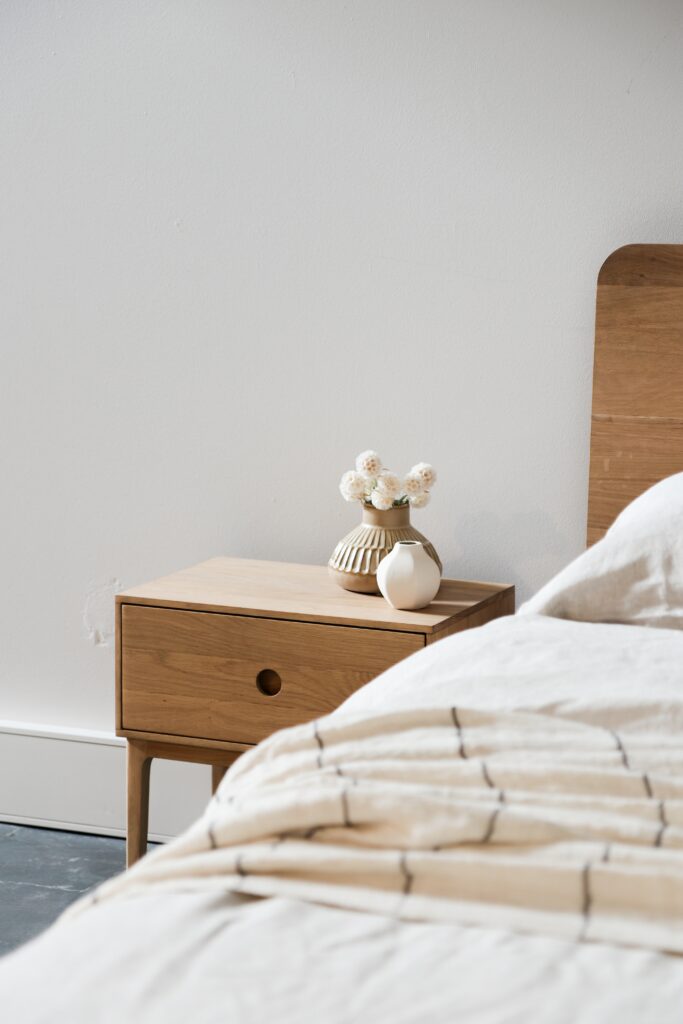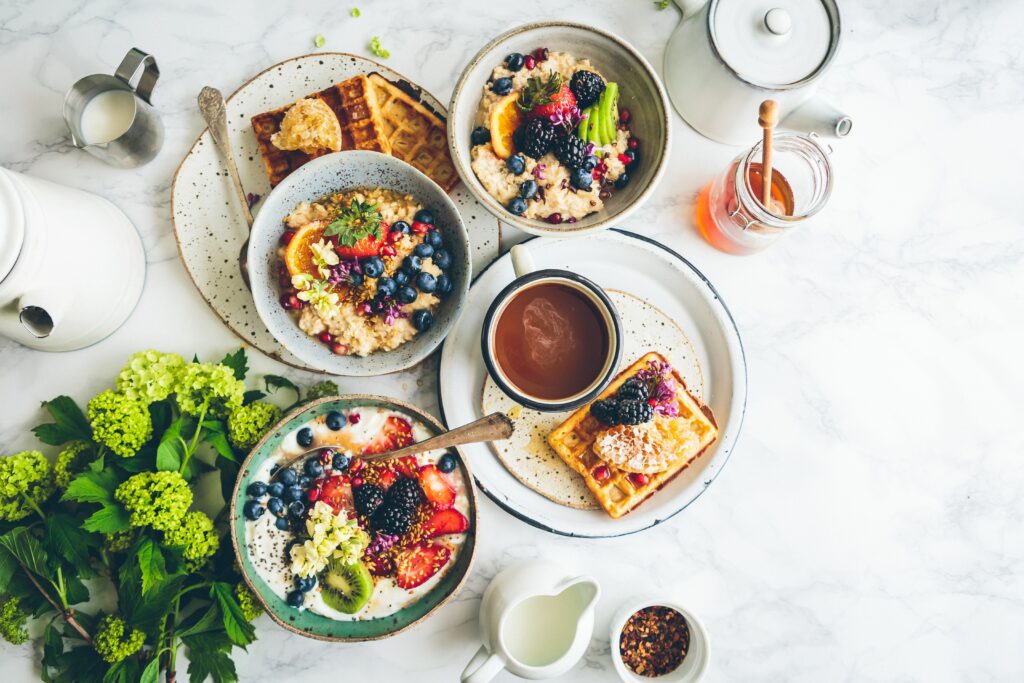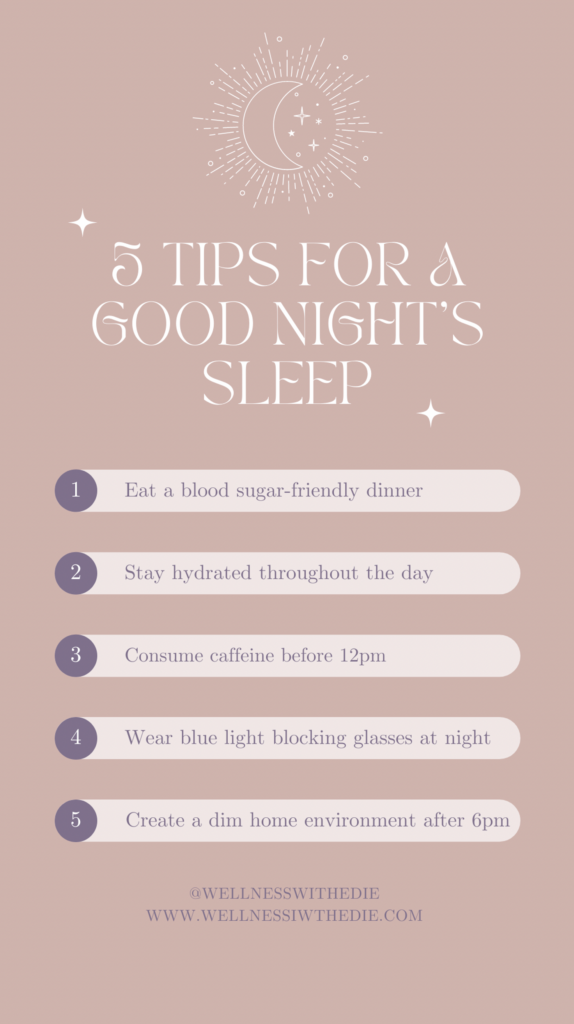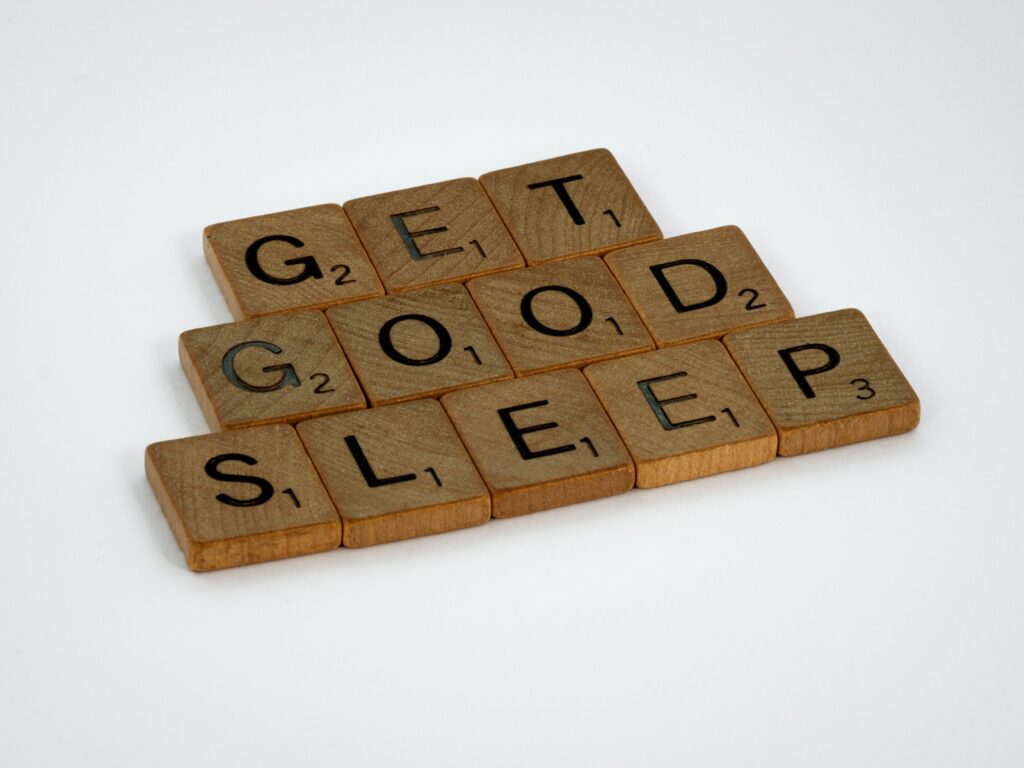What Is The Secret To Getting Better Sleep?
Sleep—the much-revered sanctuary of rest. It holds the key to our physical and mental rejuvenation. But did you know the quality of our sleep is greatly influenced by something as seemingly unrelated as our blood sugar levels? It turns out that blood sugar (the energy currency of our bodies!) plays a significant role in the delicate balance between a restful slumber and a night of tossing and turning. In the spirit of better rest, read on. We’re uncovering the surprising connection between how blood sugar impacts sleep, exploring how mismanaged blood glucose can disrupt our dreams. Where sugar meets slumber, let’s unlock the secrets to achieving sweet dreams—every night.

What Is blood sugar?
Before we dive into how blood sugar impacts sleep, let’s cover the basics. Blood sugar, or glucose, is our main source of energy. It’s a type of sugar we get from the foods we eat. From carrots to cake, our body uses that sugar for energy. As it travels through our bloodstream to our cells, it’s called blood glucose (or blood sugar). Our bodies break down—or convert—most carbohydrates into glucose. With the help of a hormone called insulin, glucose travels into the cells of the body where it can be used for energy.
Normal Ranges for Blood sugar
In terms of a normal range for blood sugar/glucose, this will vary from person to person. However, generally speaking, it’s between 80mg/dL and 120 mg/dL. Experts in the space may even say 110 mg/dL (tested two hours after eating). Other schools of thought may say that anything below 140 mg/ml is considered normal; however, the tighter the window, the better. Although normal blood sugar is the goal, most people experience low and high blood sugar throughout the day. So, what’s the difference between low and high blood sugar?
Low blood sugar
Low blood sugar (hypoglycemia) occurs when an insulin surge causes too much blood sugar to be transported out of our blood. Some of these symptoms include sweating, hunger, sleepiness, irritability, and anxiety. As a result, we crave sugar and carbohydrates. This is a safety mechanism, given that sweet and starchy foods are quick sources of energy. In reality, eating these foods starts the cycle all over again. And, in the process, our body stores more fat.
High blood sugar
High blood sugar (hyperglycemia) occurs when the insulin is unable to transport enough blood sugar out of our blood. Some of these symptoms include dry mouth, weakness, frequent urination, headache, and frequent thirst.

When to Talk to Your Doctor About Blood Sugar Issues
Think of these symptoms as warning signs. If you experience them frequently, chat with your doctor or work with a Registered Dietitian to get your blood glucose in check. Unfortunately, these highs and lows can eventually lead to high blood pressure, diabetes, wrinkles, weight gain, and more. Therefore, maintaining a consistent blood sugar level is a key component of optimal health. Luckily, managing your glucose levels isn’t rocket science.
what happens to blood sugar while you sleep?
For context, blood sugar levels surge while you’re sleeping, usually around 4-8 a.m. for someone with a normal sleep schedule (this is called the dawn effect). In a healthy person, insulin can handle the surge by telling muscle, fat, and liver cells to absorb the glucose from the blood. This keeps your blood sugar levels stable. For those who have diabetes—or experience chronically mismanaged blood sugar—insulin can’t do its job very well. Thus, in the middle of the night, blood sugar levels rise.

How blood sugar impacts sleep
To get more specific, here’s how blood sugar levels affect sleep:
Blood Sugar Spikes and Insomnia
Consuming a large meal—or foods high in refined carbohydrates, sugar, or caffeine—close to bedtime can cause a spike in blood sugar levels. This surge triggers a release of insulin to regulate the elevated glucose. The body’s attempt to regulate blood sugar can interfere with falling asleep or staying asleep throughout the night.
Hypoglycemia and Sleep Interruptions
On the other hand, low blood sugar levels can disrupt sleep patterns. When blood sugar levels drop too low, the body releases stress hormones like cortisol and adrenaline. These hormones activate the “fight or flight” response, leading to sleep disturbances, nightmares, or even waking up in a startled state.
Sleep Duration and Blood Sugar ControL
Insufficient sleep and irregular sleep patterns can negatively impact blood sugar control. Lack of sleep can impair insulin sensitivity, leading to higher blood sugar levels. Chronic sleep deprivation has also been associated with an increased risk of developing insulin resistance and type 2 diabetes.

How To promote a better night’s sleep
So, how can you encourage a better night’s rest? First and foremost, avoid these foods close to bedtime. If you enjoy a nighttime snack, make it balanced: turkey roll-ups with a handful of pumpkin seeds, berries and walnuts, or dark chocolate with a spoonful of almond butter, or keto chia pudding. During the day, incorporate regular physical activity into your routine, as it can improve insulin sensitivity and blood sugar regulation. Lastly, establish a consistent sleep schedule and create a relaxing bedtime routine.
By understanding the intricate relationship between blood sugar and sleep, you can make informed choices to optimize both your blood sugar control and sleep quality..
Even partial sleep deprivation causes blood sugar issues
When blood sugar is managed throughout the day, restorative sleep is much more likely. However, even partial sleep deprivation increases insulin resistance. In turn, this can increase blood sugar levels. As a result, a lack of sleep has been associated with diabetes, a blood sugar disorder. Main takeaway? Balanced blood sugar leads to restful sleep, and restful sleep leads to better-managed blood sugar. It’s a two-way street.
How to achieve balanced blood sugar? I have you covered here, here, and here.

Get quality sleep
To bring this article full circle, balanced blood sugar is linked to quality Zzz’s. You’re likely no stranger to the power of restful, regenerative sleep. Good sleep leads to better performance, cognitive function, hormone health, mood stability, and balanced blood sugar. Getting quality sleep (7-9 hours) is essential. Skimping on these important hour causes cortisol and blood sugar to rise. Along with doing a nighttime meditation, you may also benefit from taking an adaptogen or CBD tincture before bed. Oh, and be sure to limit blue light.
Images courtesy of Unsplash.
This article may contain affiliate links. Thank you for supporting Wellness with Edie!
This article is for informational purposes only. It is not, nor is it intended to be, a substitute for professional medical advice, diagnosis, or treatment and we recommend that you always consult with your healthcare provider.






